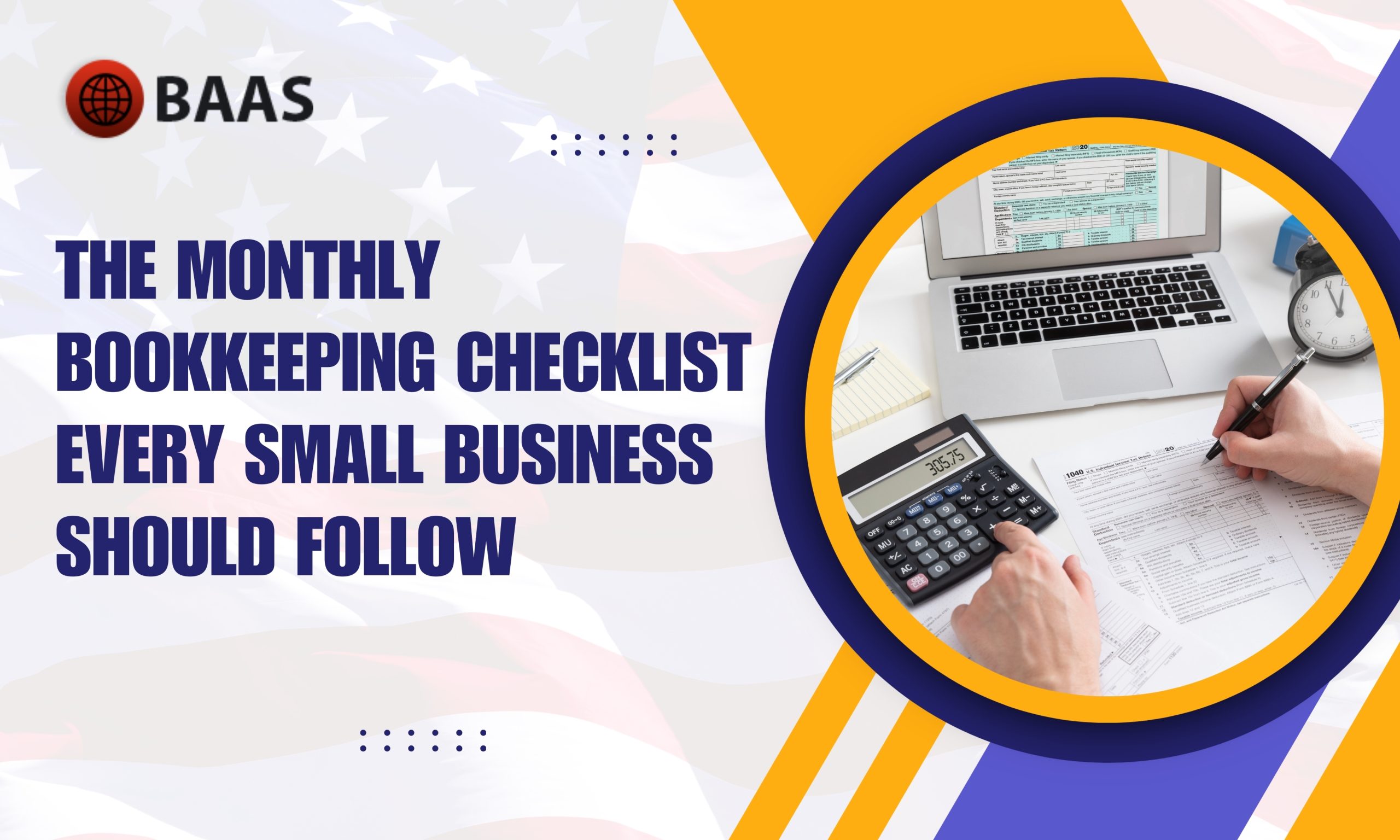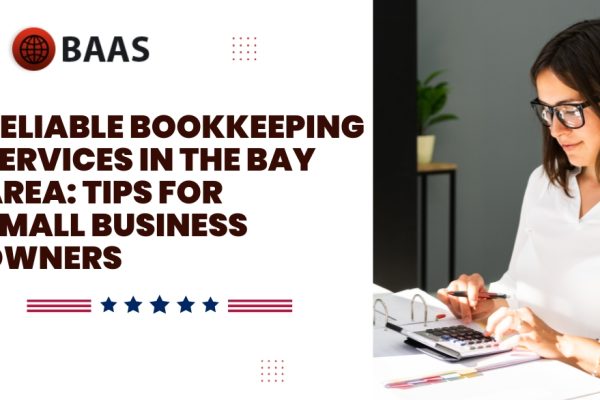The Monthly Bookkeeping Checklist Every Small Business Should Follow
Bookkeeping is the backbone of any successful small business. Without organized financial records, you risk late payments, tax penalties, and missed opportunities for growth. A structured monthly bookkeeping routine ensures your business stays compliant, financially healthy, and prepared for both tax season and future expansion.
Why a Monthly Bookkeeping Checklist Matters
For small business owners, Bookkeeping isn’t just about tracking income and expenses—it’s about gaining control. With a monthly checklist, you’ll:
- Stay on top of cash flow
- Catch errors before they become bigger problems
- Ensure taxes are filed accurately and on time
- Build stronger financial strategies for growth
- Keep your business audit-ready at all times
The Monthly Bookkeeping Checklist
1. Record All Income & Expenses
Track every sale, payment, and expense. Whether you’re using accounting software or spreadsheets, make sure all transactions are recorded and categorized properly.
2. Reconcile Bank & Credit Card Accounts
Compare your bank and credit card statements with your bookkeeping records. Reconciliation ensures that your records match actual balances, helping spot fraud or mistakes early.
3. Review Accounts Receivable (Money Owed to You)
Check which clients or customers still owe you money. Send reminders or invoices for overdue payments. Staying on top of receivables improves cash flow.
4. Review Accounts Payable (Bills You Owe)
Make sure you’re paying suppliers and vendors on time. Late payments can hurt relationships and may lead to penalties.
5. Track Sales Tax & Payroll Liabilities
If you collect sales tax or run payroll, confirm that you’ve calculated and set aside the correct amounts. Missing tax or payroll filings can lead to costly fines.
6. Review Financial Statements
At the end of each month, generate your profit and loss statement, balance sheet, and cash flow report. These reports give insight into profitability and business health.
7. Back Up Financial Data
Always back up your financial data, either through cloud storage or secure external drives. This protects your business in case of data loss.
Common Mistakes Small Businesses Make
- Mixing personal and business expenses
- Forgetting to reconcile accounts regularly
- Ignoring overdue invoices
- Failing to back up records
- Waiting until tax season to organize books
Why Bay Area Accounting Solutions Is the Best Choice
At Bay Area Accounting Solutions, we don’t just manage your books—we simplify the entire process so you can focus on growth. Here’s why small business owners across California trust us:
Local Experts — Deep knowledge of California tax and business laws
All-in-One Services — Bookkeeping, payroll, tax filing, and compliance under one roof
Catch-Up & Clean-Up Specialists — Behind on your books? We’ll get you back on track quickly
Technology-Driven — Cloud-based tools for real-time visibility and accuracy
Personalized Support— Every client gets tailored strategies based on their industry and goals
We’ve helped hundreds of small businesses save time, avoid penalties, and make smarter financial decisions.
Pro Tip for Small Business Owners
Set a recurring date each month to complete your checklist. Whether it’s the last Friday or first Monday of the month, consistency is the key to stress-free bookkeeping.
Conclusion
Bookkeeping doesn’t have to be overwhelming. By following a structured monthly checklist, you’ll keep your finances clean, avoid compliance headaches, and set your business up for long-term success. And if you’d rather spend more time running your business than crunching numbers, Bay Area Accounting Solutions is here to help.
FAQ — Monthly Bookkeeping for Small Businesses
Q1: Do I really need to reconcile my bank account every month?
A: Yes. Monthly reconciliation helps catch errors, fraud, or missed transactions before they cause major issues.
Q2: Can I do bookkeeping myself, or should I hire a professional?
A: You can start on your own, but as your business grows, a professional ensures accuracy, tax compliance, and saves you time.
Q3: What’s the difference between bookkeeping and accounting?
A: Bookkeeping is recording daily transactions, while accounting interprets financial data and creates strategies.
Q4: How much does professional bookkeeping cost?
A: Costs vary by business size and complexity. At Bay Area Accounting Solutions, we offer affordable packages tailored to small businesses.
Q5: What happens if I fall behind on my books?
A: Don’t panic—we specialize in catch-up bookkeeping and can get your records organized quickly.





